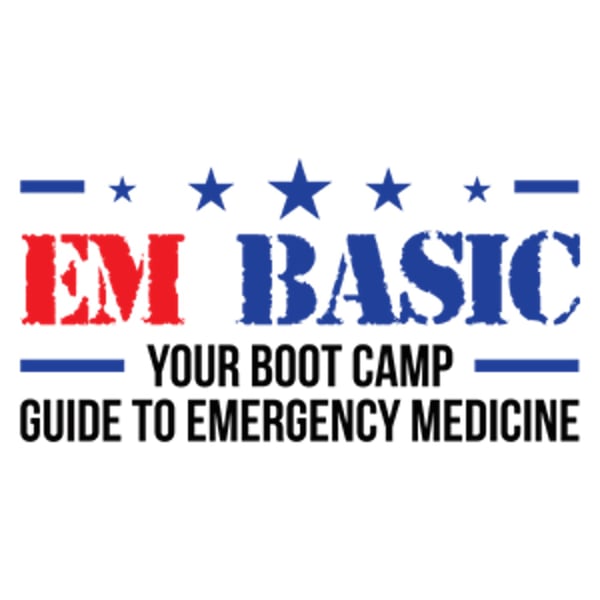Summary
Syncope (or "passing out") is a chief complaint that we deal with a lot in the emergency department. While most causes of syncope are benign and need nothing more than reassurance, we need to be on the lookout for the serious causes of syncope. This episode will focus on the definition of syncope, how to get a complete history, catch the red flags, perform a targeted workup that doesn't keep the patient in the ED forever, and how to scrutinize an EKG for the deadly arrhythmias that we can't miss.
In addition, per a request from a podcast listener, there is a bonus section on how to effectively rehydrate patients in the ED. You may be surprised that there are other options besides putting an IV in everyone.
Transcript
Click on a timestamp to play from that location
| 0:00.0 | This is Steve Carroll and you're listening to the EM Basic podcast. In this episode, we're going to talk about syncope. |
| 0:07.0 | This is something that we deal with a lot, and while most causes of syncope aren't anything to worry about, |
| 0:12.0 | we need to find those people who have potentially serious causes of syncope or passing out. |
| 0:17.1 | For a bonus section, at the request of a listener, we'll talk a little bit about how to |
| 0:21.0 | rehydrate patients in the ED. As always, this podcast doesn't represent the views or opinions of |
| 0:25.9 | the Department of Defense, the U.S. Army, or the Shawshack Emergency Medicine Residency. |
| 0:31.0 | As always, pay attention to the vital signs on the chart. |
| 0:34.5 | Hypotension or tachycardia can be worrisome signs in a patient with syncope. |
| 0:38.5 | Before we talk about how to take the all-important history, we need to talk about the definition |
| 0:43.2 | of synchemy. Synchemy is defined as a rapid loss of consciousness, followed by a rapid return to |
| 0:48.9 | baseline. The biggest mistake that we make here is the rapid return to baseline part. |
| 0:54.0 | If the patient doesn't wake up |
| 0:55.5 | immediately after they pass out, then it's not syncope and it needs to be investigated in a much |
| 1:00.2 | different manner. Also, if the patient has any other symptoms like chest pain, headache, or seizure |
| 1:05.7 | activity, then this needs to be investigated in a much different manner. To illustrate this |
| 1:10.4 | point, I'll actually use myself as an example. |
| 1:13.2 | A few years ago, I passed out on a flight. |
| 1:15.9 | Before I left that morning for the flight, I worked out at the gym and ate a large lunch of Mexican food before I got on the plane. |
| 1:22.2 | No alcohol, I swear. |
| 1:23.9 | I fell asleep on the plane with the sun shining directly through the window, and when I woke |
| 1:28.3 | up I felt awful. I felt hot and flushed. I felt nauseous and dizzy. I honestly have never felt so |
| 1:34.0 | awful my entire life. I got up to go to the bathroom in the back of the plane and made it about |
... |
Please login to see the full transcript.
Disclaimer: The podcast and artwork embedded on this page are from EM Basic LLC, and are the property of its owner and not affiliated with or endorsed by Tapesearch.
Generated transcripts are the property of EM Basic LLC and are distributed freely under the Fair Use doctrine. Transcripts generated by Tapesearch are not guaranteed to be accurate.
Copyright © Tapesearch 2025.

